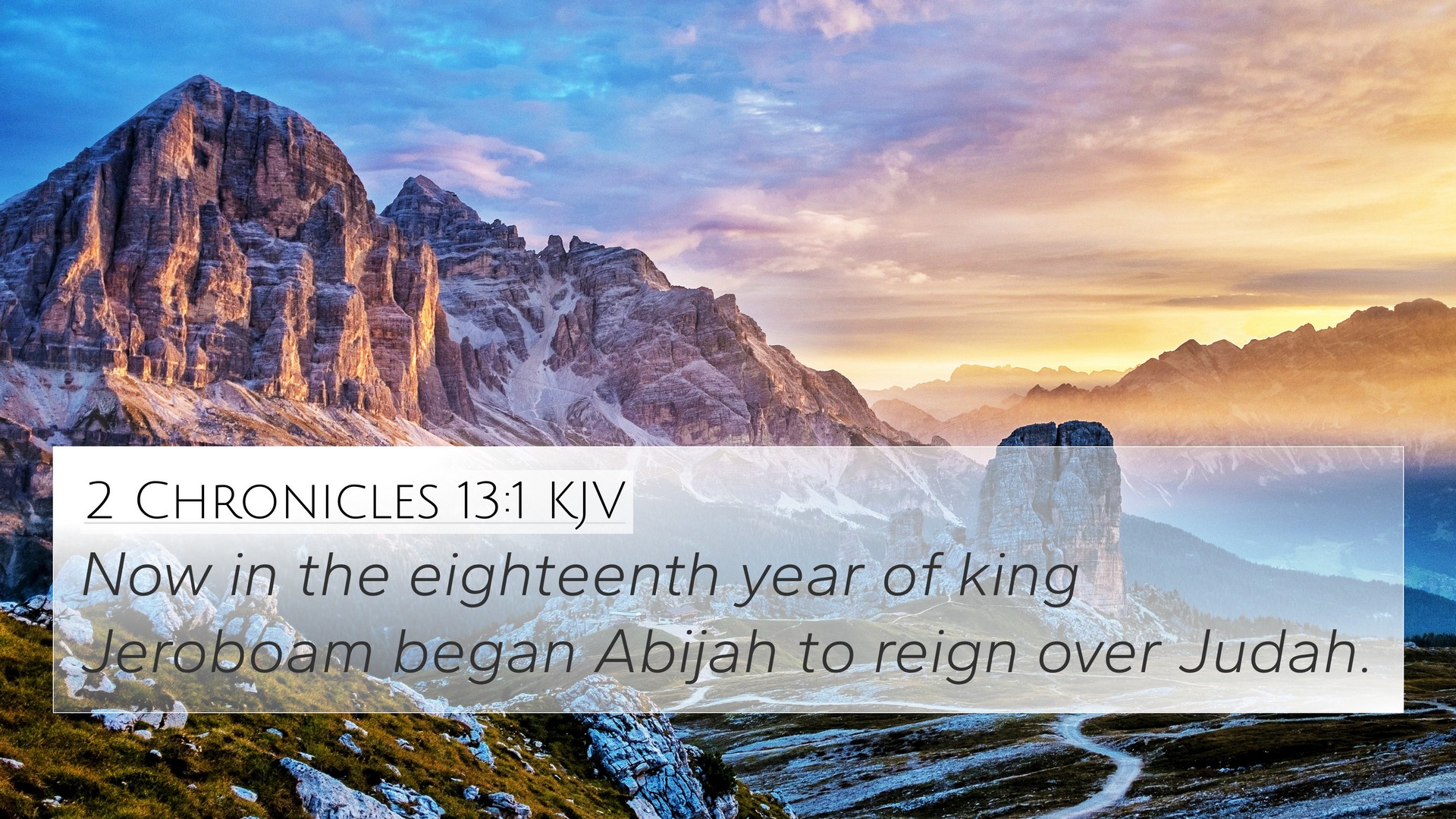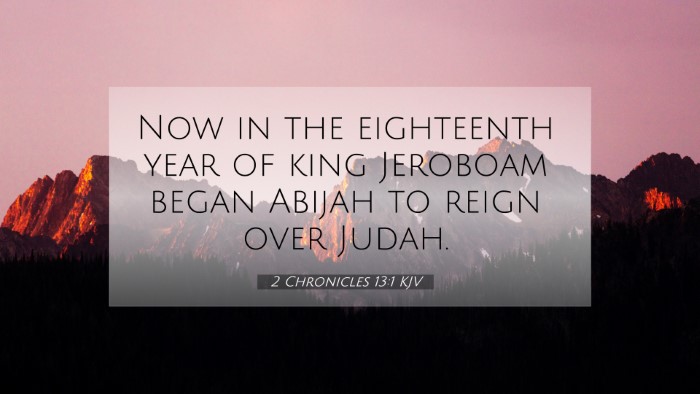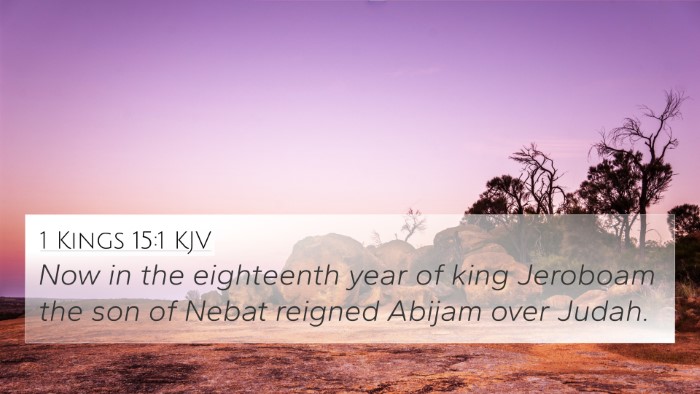Understanding 2 Chronicles 13:1
Verse Context: 2 Chronicles 13:1 states, "In the eighteenth year of King Jeroboam, Abijah began to reign over Judah." This verse introduces King Abijah, marking a significant moment in the narrative of the divided kingdom of Israel.
Summary of Insights
This verse serves as both an introduction to Abijah's reign and a reminder of the political dynamics between the kingdoms of Judah and Israel. The significance of numbering the year in the reign of Jeroboam highlights the ongoing contrast between the two kingdoms. The commentary from various biblical scholars illuminates the implications of Abijah's rule and the historical context of the divided monarchy.
Commentary Insights
-
Matthew Henry's Commentary:
Henry discusses the implications of Abijah ascending to the throne, noting that he continued the legacy of his father, Rehoboam, who had established his rule based on familial loyalty to David's line. This provides continuity amidst political instability.
-
Albert Barnes' Notes:
Barnes emphasizes the timing of Abijah's reign in relation to Jeroboam's rule. He highlights the contrast between Judah's faithfulness to God through David’s lineage and Israel's departure from God, reflecting on the fate of each kingdom.
-
Adam Clarke's Commentary:
Clarke offers insights into the contrasting nature of the two kingdoms, illustrating how Abijah, despite his shortcomings, represented a continued adherence to the Davidic covenant, unlike Jeroboam's lead which led Israel into idolatry.
Thematic Connections and Cross-References
2 Chronicles 13:1 connects to several important themes in the biblical narrative, particularly the enduring conflict between the followers of God and those who forsake Him. Below are some relevant cross-references:
- 1 Kings 15:1-2: Discusses the reign of Abijah's father, Rehoboam, providing background on Judah's kingship.
- 2 Chronicles 12:13-15: Highlights Rehoboam's earlier failures and political struggles that Abijah inherits.
- 1 Kings 14:1-20: Details Jeroboam's reign in Israel, establishing a continuing narrative of disobedience.
- 2 Chronicles 13:5: Presents Abijah's proclamation of God's covenant with David, emphasizing the righteousness of Judah.
- 2 Chronicles 14:1: Ensures the continuity of the narrative through the reign of Abijah's successor.
- 1 Chronicles 3:10: Establishes Abijah’s place in the genealogical record, affirming his lineage from David.
- Jeremiah 22:4: Speaks to God's promises regarding the Davidic line, further affirming the significance of Abijah's reign.
Inter-Biblical Dialogue
This verse serves as a bridge between the Old Testament's accounts of the divided kingdom and the themes of fidelity and betrayal that run throughout Scripture. As such, it allows for a deeper comparative Bible verse analysis, revealing how different biblical authors interpret and connect various events.
Using Cross-References for Deeper Study
For those looking to study 2 Chronicles 13:1 in more depth, consider utilizing tools for Bible cross-referencing. A Bible concordance can help identify relationships between the various verses cited, while a cross-reference Bible study will facilitate a broader understanding of the biblical narrative.
Studying the Connections
Understanding the connections between these verses reveals a greater theological perspective on God's promises and the consequences of leadership decisions. For example, examining the contrasts between Abijah and Jeroboam allows believers to evaluate the implications of faithfulness versus idolatry.
Conclusion: The Importance of Context
In conclusion, 2 Chronicles 13:1 is not merely a historical record; it is a pivotal point that opens discussions about the integrity of kings, the nature of faithfulness to God, and the fulfillment of divine promises. Through detailed cross-reference studies, readers can deepen their understanding of the intricate web of Biblical teachings surrounding leadership, allegiance, and God's unwavering covenant with His people.




